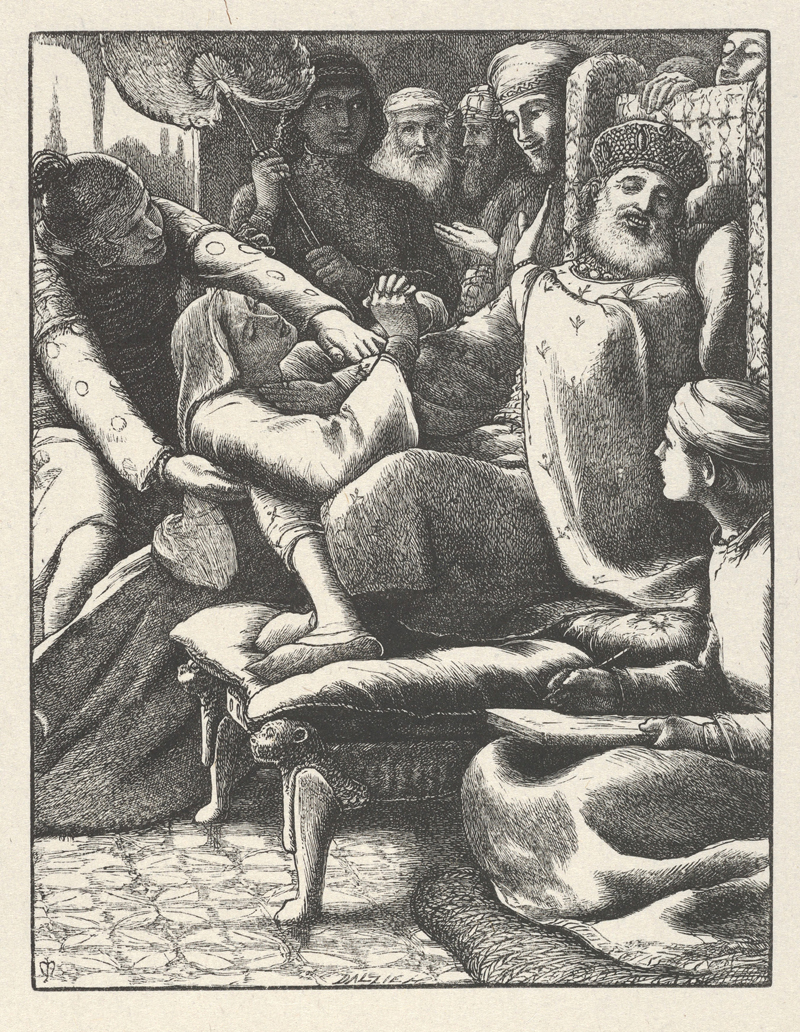
Unjust Judge and the Importunate Widow
John Everett Millais, 1864
My dear friends,
Today, let us explore the wisdom contained in the passage found in Luke 18:1-8. In these verses, we find a parable shared by Jesus, a profound teaching about prayer, perseverance, and the nature of faith. Let us approach it with an open heart and a mind ready to receive the spiritual guidance it offers.
The parable begins with Jesus encouraging us to pray always and to never lose heart. This opening statement sets the stage for a story that illustrates the power of unwavering faith and persistence in our spiritual journey. It reminds us that in our lives, there may be times when we face challenges and obstacles, and in those moments, prayer can be our source of strength and solace.
In this parable, Jesus introduces us to a judge in a certain city, a judge who neither feared God nor had respect for people. This judge represents the epitome of injustice, one who is indifferent to the cries of those seeking justice. In contrast, we encounter a widow, a symbol of vulnerability and helplessness, who persistently pleads for justice against her opponent.
For a while, the unjust judge refuses her request, but as time passes, he has a change of heart. He thinks to himself, "Though I have no fear of God and no respect for anyone, yet because this widow keeps bothering me, I will grant her justice." It is essential to understand that the judge's decision is not born out of a newfound sense of compassion but rather out of a desire to avoid being worn down by the widow's relentless pleas.
What can we learn from this parable? First and foremost, we must recognize the value of perseverance and determination in our spiritual practices. The widow's persistence in seeking justice serves as an example of how we should approach our prayers and meditation. Regardless of the obstacles we face or the injustices we witness, we must continue to pray and meditate, trusting that our efforts will bear fruit.
Secondly, this parable reminds us that even in the face of apparent indifference or injustice in the world, we should not lose faith in the power of goodness and compassion. Just as the widow's constant pleas eventually moved the unjust judge, our unwavering faith and commitment to virtuous actions can influence positive change in the world.
Furthermore, we should not be disheartened by delays or setbacks in our spiritual journey. The widow's struggle was not easy, and it took time for the judge to respond. Similarly, our prayers may not always yield immediate results, but we should trust that the divine justice is at work, and our requests will be answered in due time.
Ultimately, the core message of this parable is captured in Jesus' question: "And will not God grant justice to his chosen ones who cry to him day and night? Will he delay long in helping them?" The answer is clear: God will indeed grant justice to those who persistently seek it with faith.
As we reflect upon these teachings, let us remember that our faith is not tested when everything is going smoothly, but when we face adversity and injustice. Let us pray always, for others – near and far, friends and enemies, known and unknown – as well as for ourselves. And let us never lose heart, for in our unwavering faith and persistence, we find the strength to make the world a better place.
In closing, let us ponder the final question posed by Jesus in this parable: "And yet, when the Son of Man comes, will he find faith on earth?" May we strive to be among those who answer this question with a resounding "yes," for in our faith and persistence, we bear witness to the enduring power of love and compassion in the world.
May we all find peace and inspiration in the teachings of this parable.